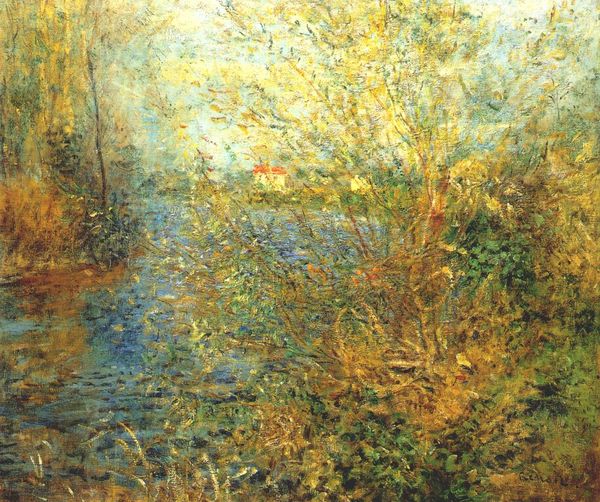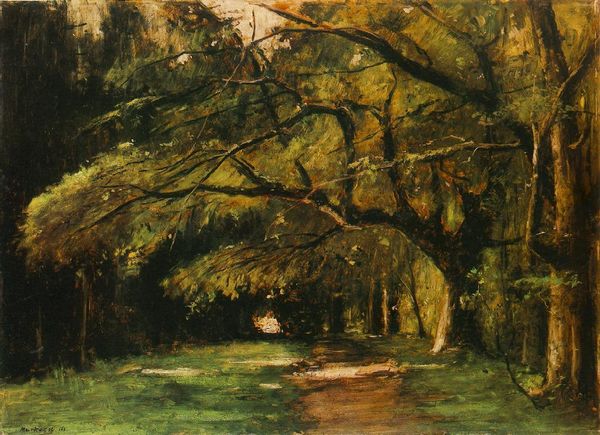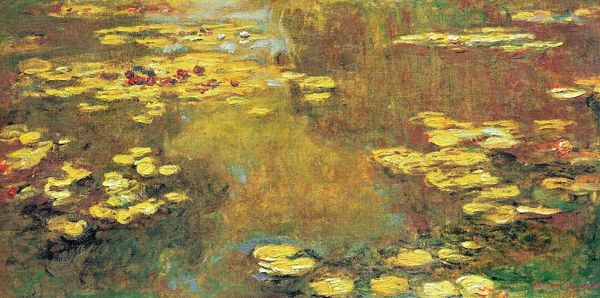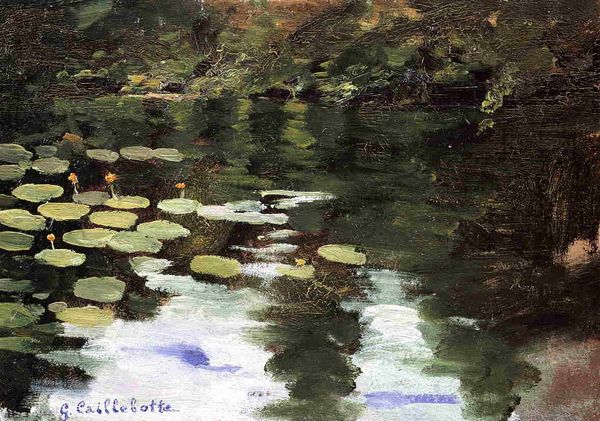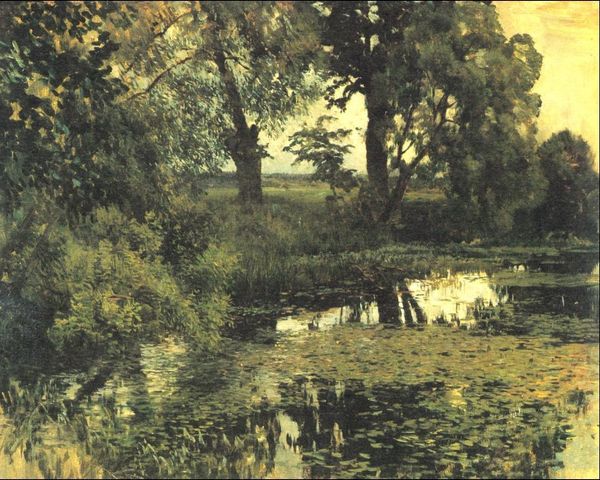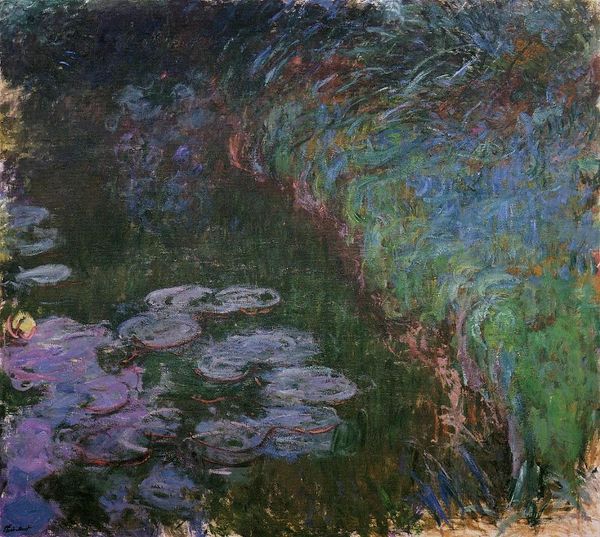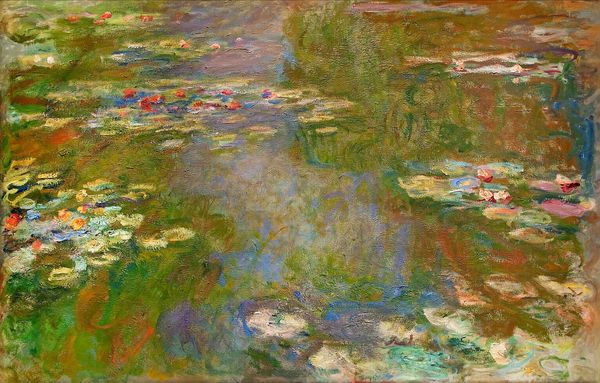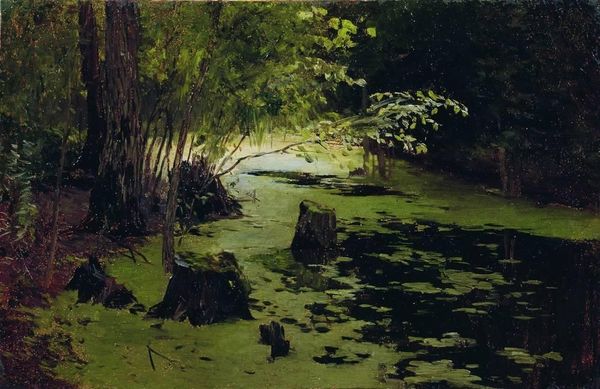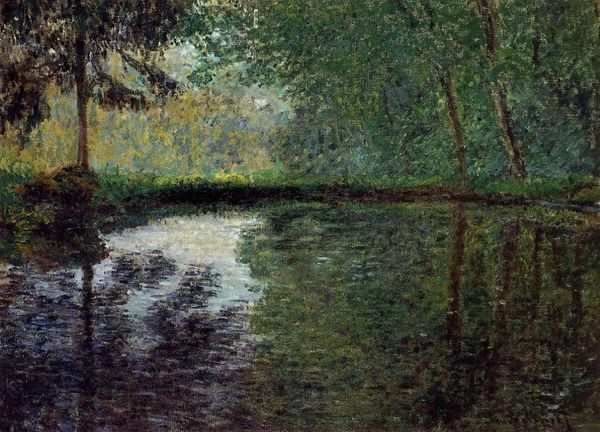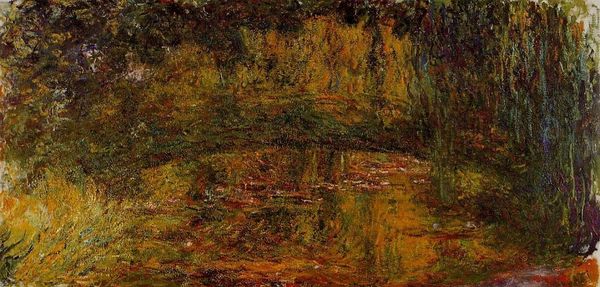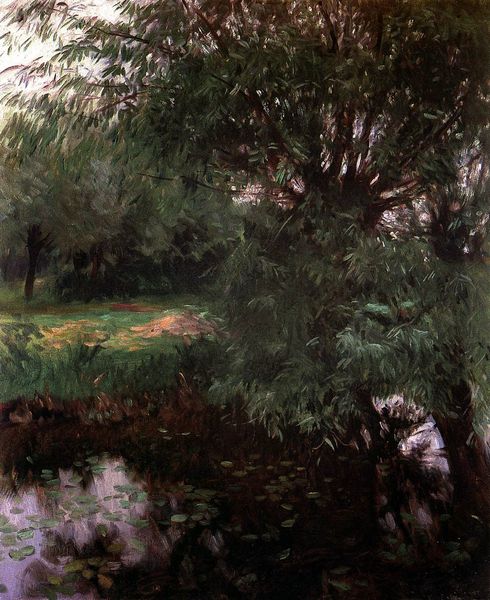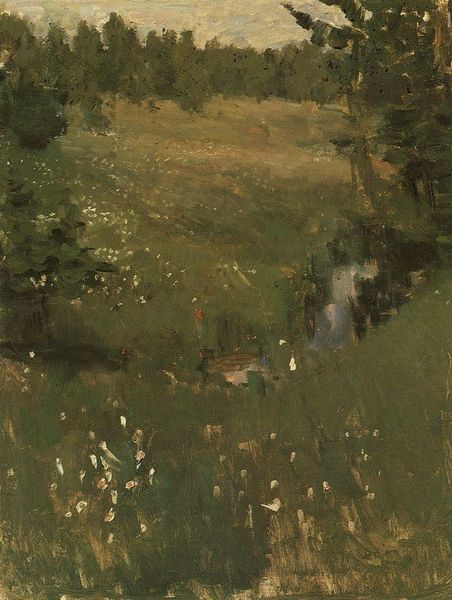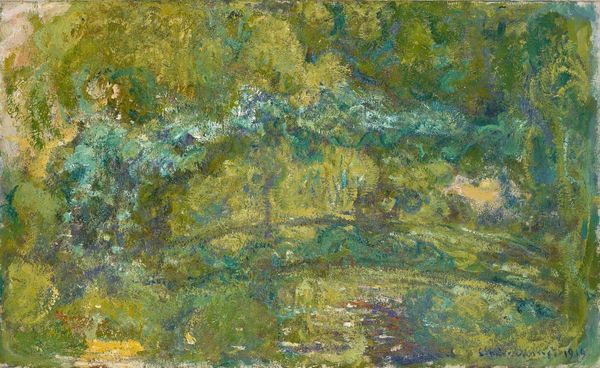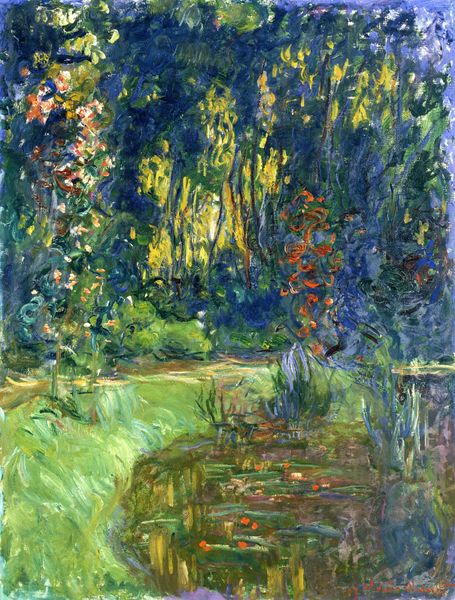
painting, plein-air, oil-paint
#
painting
#
impressionism
#
impressionist painting style
#
plein-air
#
oil-paint
#
landscape
#
impressionist landscape
#
romanticism
#
genre-painting
Copyright: Winston Churchill,Fair Use
Art Historian: We're looking at a canvas titled "The Goldfish Pool at Chartwell," by Winston Churchill. Curator: Hmm, a rather murky pool scene. I'm struck by the muted palette and the very loose brushstrokes – it verges on abstraction in places. Not exactly technically perfect, but atmospheric, definitely. Art Historian: Goldfish have appeared across cultures for millennia, often symbolizing prosperity and good fortune. Here, their bright orange forms seem almost deliberately placed, puncturing the otherwise muted tones. There is perhaps, in the middle of his war-ridden political career, a personal wish for calmer waters reflected here. Curator: Yes, those pops of orange certainly do energize the composition. Note how he layers the paint, especially in the foliage. The reflections, or lack thereof, create this sort of visual tension and a subtle sense of depth, and flatten the picture plane, simultaneously. Art Historian: Churchill's choice of painting en plein air further enriches our understanding. Consider how he, as a wartime leader, would escape to paint in nature. It is almost as if the very act of creating offered solace and sanctuary. Curator: A fascinating juxtaposition, indeed. Observe also how the artist employs impasto techniques in the foreground, creating a tactile surface that draws the eye downwards into the painting's space. The heavy layering around the edges almost contain the pool's effervescent nature, and focus the viewer's attention in a very deliberate manner. Art Historian: And given the specific context – a personal space for Churchill – these goldfish transform from mere subject matter into something akin to personal emblems or totems. Almost a visual metaphor for the hopes and aspirations of their caretaker during those tumultuous years. Curator: I agree. Though his style might not adhere strictly to established movements, the work uses texture and a restricted color scheme very consciously. Ultimately, its appeal relies on evoking mood and atmosphere over detailed representation. I'm intrigued that we might know more by understanding what the picture does than what it 'is'. Art Historian: Absolutely, and by understanding Churchill’s interiority and the continuity of cultural symbols across the centuries. Curator: I have to concede – more than a few compositional observations were required for me to meet you in those depths.
